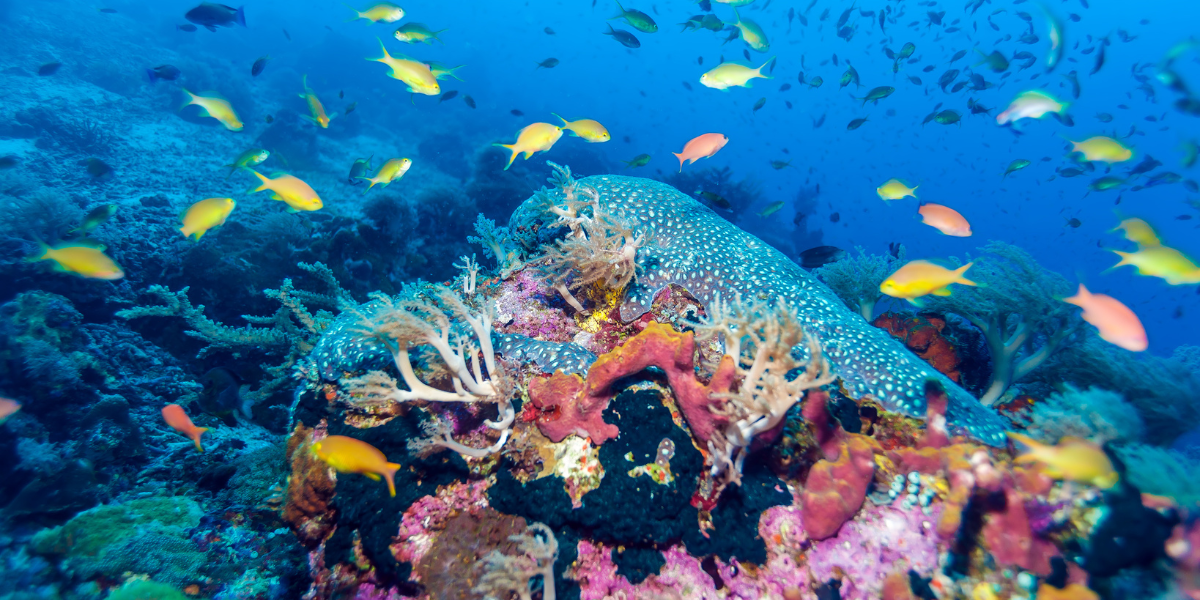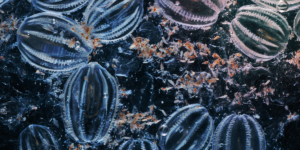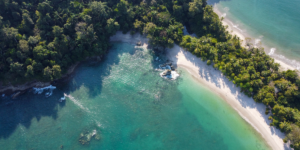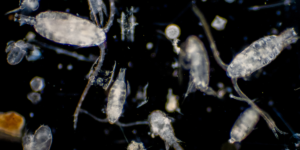As you stand at the edge of the ocean, waves crashing against your feet, it’s easy to feel a sense of awe and wonder at the sheer vastness and power of this natural world. But have you ever stopped to consider just how important marine ecology is?
The study of marine ecosystems, their organisms, interactions, and environments is crucial not only for understanding our planet but also for protecting it. Marine ecology encompasses a wide range of topics from the diversity of life found in oceans to the interconnectedness between different species to environmental processes that shape these ecosystems.
By studying marine ecology, we can gain insight into how these complex systems work and what impact humans are having on them. In turn, this knowledge allows us to make informed decisions about conservation efforts and address global challenges such as climate change.
So let’s dive deeper into what makes marine ecology so vital for our planet’s health and well-being.
Key Takeaways
- Marine ecology is crucial for understanding and protecting our planet, encompassing a wide range of topics from biodiversity to environmental processes.
- Conservation of marine biodiversity is essential for preserving the wealth of life in the ocean and providing important services such as nutrient cycling, waste disposal, and shoreline protection.
- Human activities have a significant impact on marine ecosystems, and sustainable practices such as responsible fishing and ecotourism are crucial for maintaining healthy marine life.
- Marine conservation has economic and ecological benefits, and informed decision-making based on sound scientific research is essential for preserving the delicate balance of our oceans.
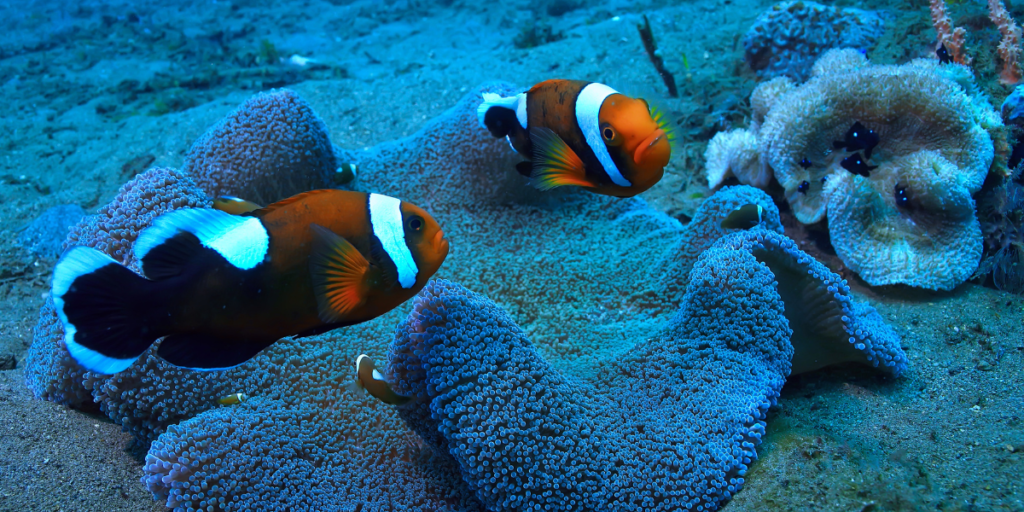
The Diversity of Marine Life
The sheer multitude of species inhabiting the ocean is a testament to the breathtaking diversity of marine life. From tiny planktonic organisms to massive whales, the ocean is home to a vast array of living creatures that play vital roles in maintaining the health and balance of our planet’s ecosystems.
Marine biodiversity conservation is essential for preserving this wealth of life and ensuring that future generations can continue to benefit from the ecosystem services provided by marine life. Marine organisms help regulate global climate patterns by absorbing carbon dioxide from the atmosphere. They also provide food and livelihoods for millions of people around the world, as well as supporting industries such as tourism and pharmaceuticals.
Additionally, marine ecosystems are critical in providing other important services such as nutrient cycling, waste disposal, water purification, and shoreline protection. It is therefore crucial that we take steps to protect these valuable resources through sustainable fishing practices, pollution reduction measures, habitat restoration efforts, and other conservation initiatives.
The Impact of Humans on Marine Ecosystems
You can’t go fishing without considering how your actions affect the creatures living in the water. Humans have a significant impact on marine ecosystems, and it’s essential to take measures to protect them.
Pollution prevention is crucial in maintaining healthy marine life, as pollution can harm or kill fish, plants, and other aquatic animals. It’s not just plastic waste that harms marine life; chemicals from industrial run-off and oil spills also pose a severe threat.
Sustainable fishing practices are vital for preserving fish populations and ensuring that they remain healthy. Overfishing has led to a decline in certain species of fish, which could have negative consequences for the entire food chain. Regulations have been put in place to limit commercial fishing practices and promote sustainable methods such as catch-and-release fishing or using hooks that minimize damage to fish.
These measures help ensure that future generations will be able to enjoy the same diversity of marine life we see today.
The Interconnectedness of Marine Ecosystems
It’s fascinating how everything in the ocean is interconnected, like a domino effect where one action can have a ripple effect on the entire ecosystem.
Marine food webs are an excellent example of this interconnectivity. Each species in the food web plays a critical role in maintaining balance and stability within the ecosystem.
When one species is affected by human activities or natural causes, it can disrupt the entire food chain and lead to devastating consequences for other species.
Another factor that contributes to the interconnectedness of marine ecosystems is ocean currents and circulation. These flows of water transport nutrients, oxygen, and carbon dioxide throughout different regions of the ocean, creating distinct habitats for various marine organisms.
Changes in these currents can alter nutrient availability, temperature, and salinity levels, leading to changes in biodiversity and species distribution.
Understanding these complex interactions between different components of marine ecosystems is crucial for conserving these delicate environments and protecting their inhabitants from harm.
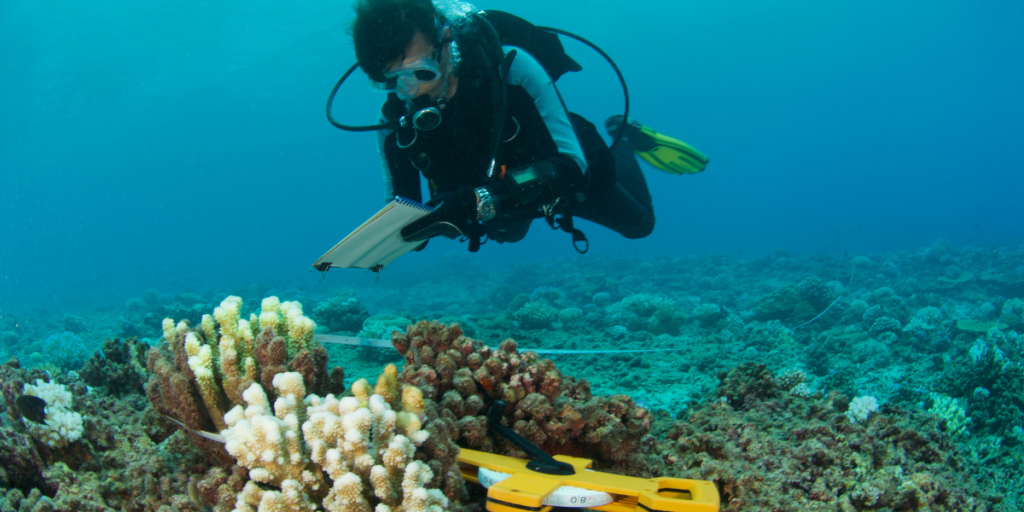
The Importance of Marine Conservation
Hey, did you know that preserving our oceans is crucial for the survival of countless species and ultimately, our own well-being?
Marine conservation is important because it ensures that the natural balance of marine ecosystems is maintained. These ecosystems provide us with a range of goods and services such as seafood, tourism opportunities, and carbon sequestration.
In addition to its ecological value, marine conservation also has economic benefits. Sustainable practices such as responsible fishing and ecotourism can generate revenue for local communities while ensuring that resources are not overexploited.
By implementing sustainable practices in all aspects of marine resource use, we can ensure that these resources will be available to future generations. Therefore, it’s essential that we prioritize marine conservation efforts to protect the health and vitality of our oceans for both present and future generations.
The Role of Marine Ecology in Addressing Global Challenges
Preserving the delicate balance of ocean ecosystems is like maintaining a complex web of interconnected threads that play a crucial role in addressing global challenges such as climate change and food security. The study of marine ecology provides valuable insights into these issues and helps to inform policy decisions aimed at protecting ocean environments.
Here are five ways in which marine ecology can contribute to tackling global challenges:
- Understanding the impact of climate change on marine ecosystems, including changes in temperature, acidity, and sea level rise.
- Identifying key species that play an important role in maintaining healthy oceans, such as keystone predators or primary producers.
- Developing strategies for sustainable fishing practices that promote food security while minimizing damage to marine habitats.
- Studying the interactions between human activities and ocean environments to guide policies that protect both natural resources and coastal communities.
- Promoting climate adaptation measures that help protect vulnerable coastal areas from rising sea levels or extreme weather events.
By taking a holistic approach to studying ocean ecosystems, marine ecologists can provide valuable information for policymakers who seek to address global challenges related to climate change and food security.
As we continue to face new environmental threats, it’s essential that we prioritize the preservation of our oceans’ delicate balance through informed decision-making based on sound scientific research.
Frequently Asked Questions
How can marine ecology help address global challenges beyond conservation efforts?
You can use marine ecology to address global challenges beyond conservation efforts. The blue economy, which involves sustainable tourism and other industries, relies on healthy marine ecosystems. By managing these ecosystems properly, we can support economic growth while also preserving biodiversity.
What are some specific examples of human impact on marine ecosystems?
You may be surprised at the extent of human impact on marine ecosystems. Overfishing impacts food webs and alters population dynamics, while pollution effects range from habitat destruction to chemical contamination.
How does the interconnectedness of marine ecosystems affect the overall health of the ocean?
The interconnectedness of marine ecosystems plays a crucial role in maintaining the overall health of the ocean. Marine food webs and biodiversity hotspots are essential components that rely on each other for survival and contribute to the sustainability of our planet’s oceans.
What are some lesser-known species that play important roles in marine ecosystems?
Did you know that microscopic organisms like plankton and bacteria are vital to marine ecosystems? Keystone species like sea otters and jellyfish also play crucial roles in maintaining balance. Understanding these lesser-known species is key to protecting the ocean’s health.
How does climate change impact marine ecology and what can be done to mitigate its effects?
To mitigate climate change impacts on marine ecology, strategies like reducing carbon emissions are crucial. Ocean acidification is a major challenge as it harms shell-forming species. Mitigating these effects requires immediate action and coordinated global efforts.
Our sponsors: Rapid Fix Garage Doors are your one stop shop for all garage door repair services in moreton bay region QLD.

